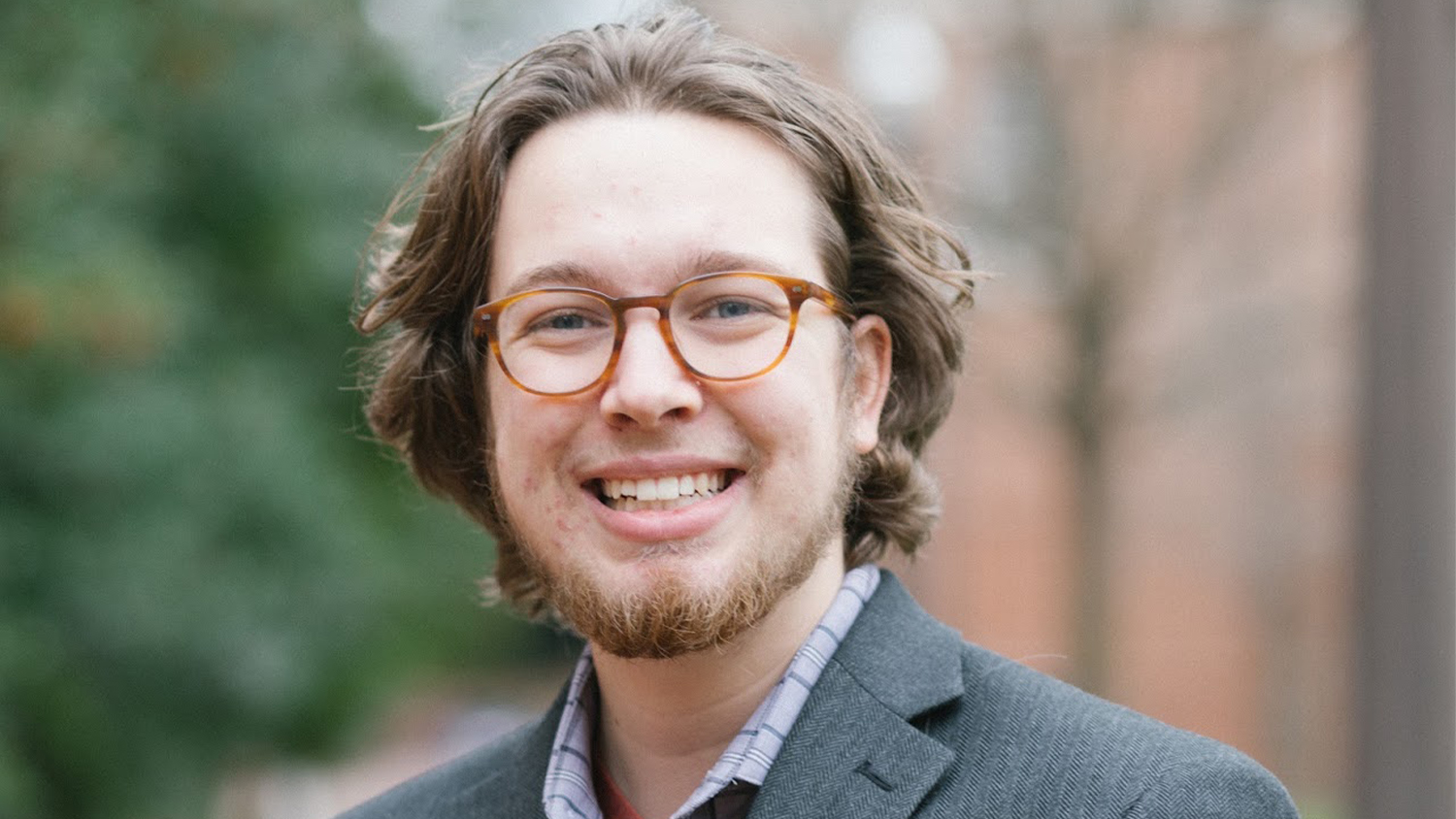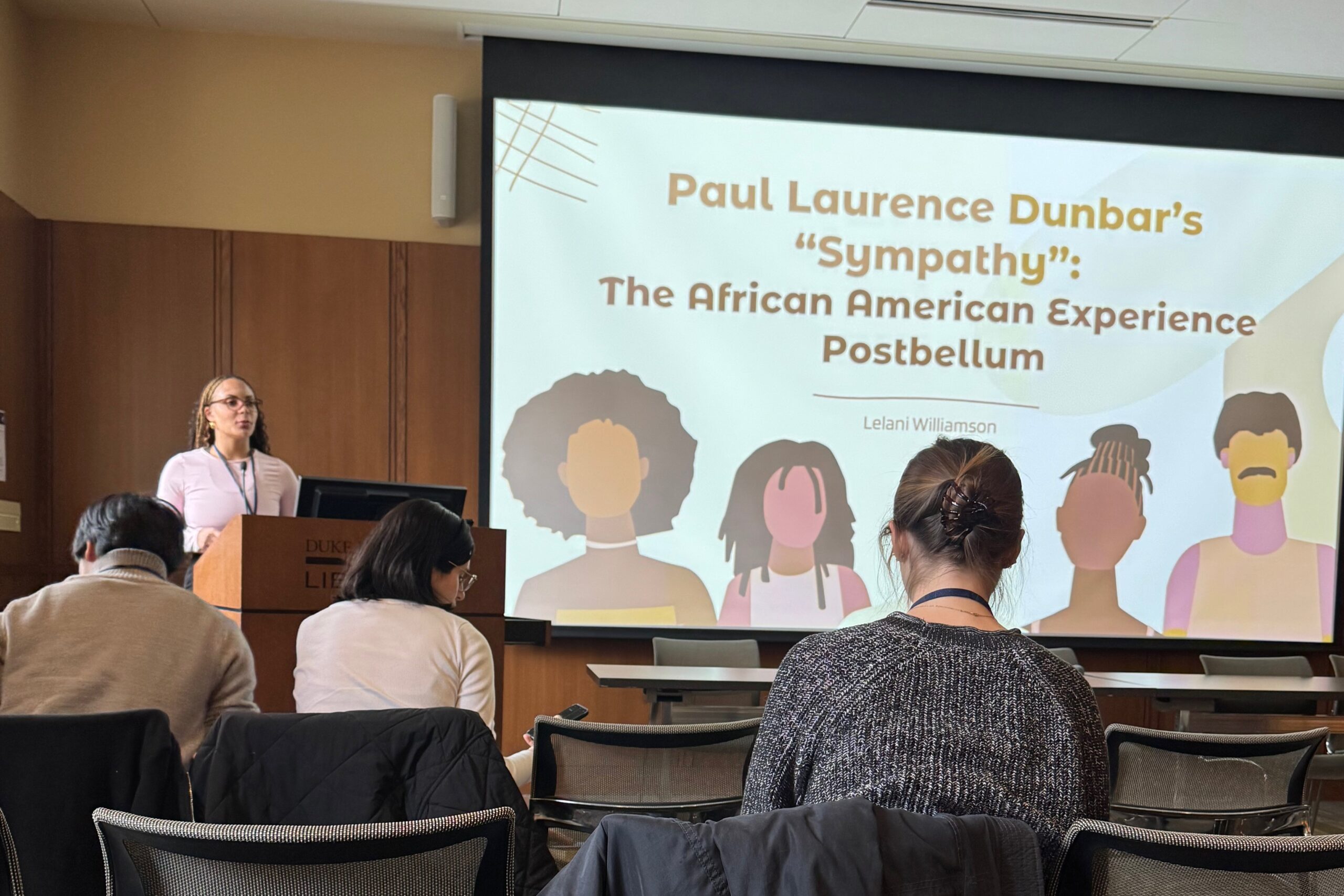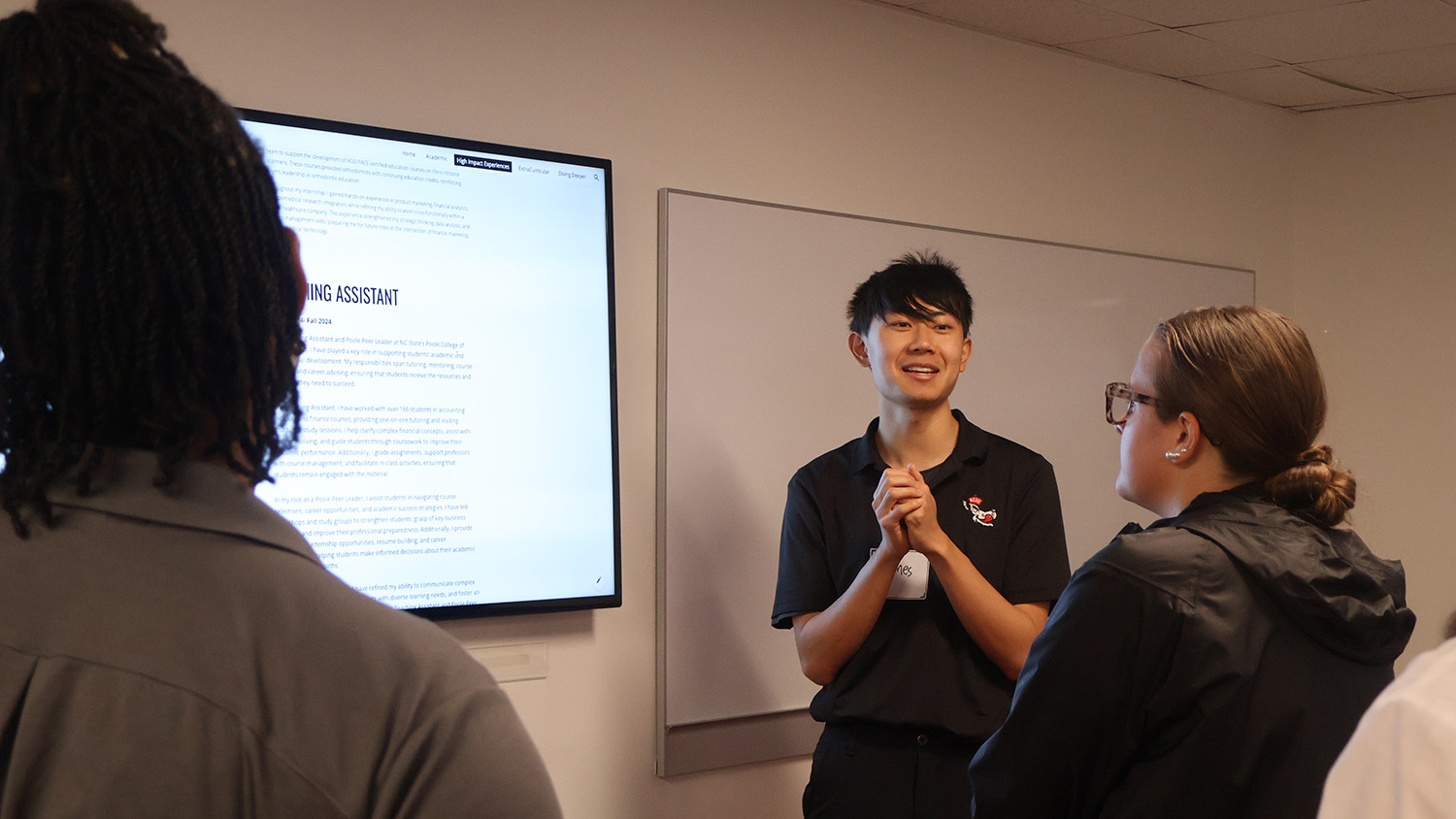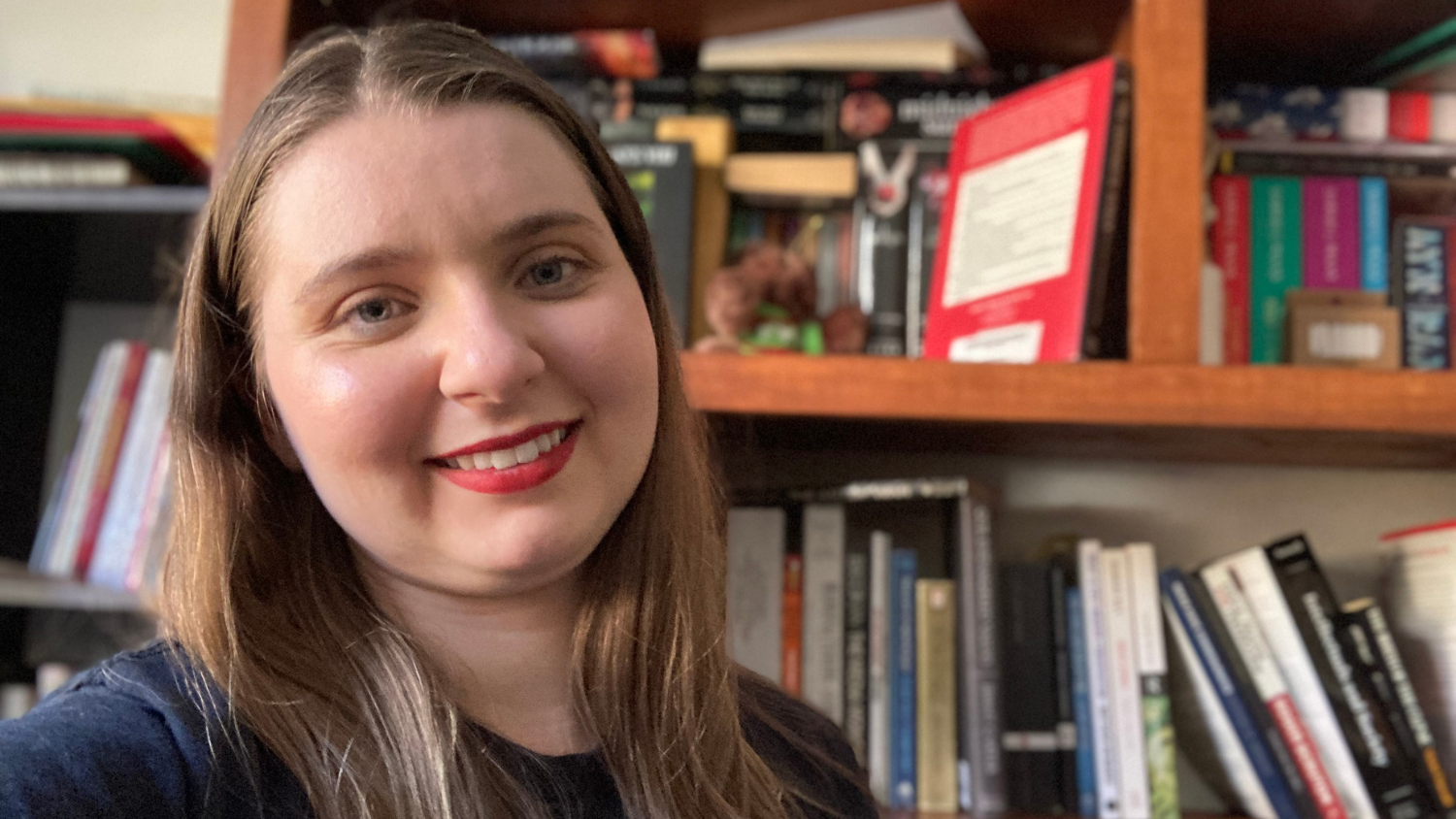Spotlight on our Students: Graham Buhrman
The University Honors and Scholars Programs recently spoke with Graham Buhrman '22, who is researching online contexts to study racism and its relationship with health outcomes and behaviors.

By Chester Brewer, assistant director of the University Honors and Scholars Programs
In this edition of Spotlight on our Students we are joined by Graham Buhrman, a junior majoring in interdisciplinary studies focused on global health and social sciences with a concentration in statistics. Graham took some time to tell us about his research on the negative impacts of racism in online contexts as it pertains to health outcomes and behaviors.
UHSP: Graham, first of all thanks for taking the time to talk with us about your work. Get us started by telling us the topic of your research and who are you doing it with?
GB: The topic of my research is using online contexts to study racism and its relationship with health outcomes and behaviors. This project is specifically focused on bringing the fields of health psychology and data science together to uncover trends in online spaces. I am conducting this research under the mentorship of Dr. Vanessa Volpe as a member of the Black Health Lab.
UHSP: That sounds like truly crucial work to be doing. What sparked your interest in this research topic?
GB: When I joined the Black Health Lab as a Sophomore, I was very interested in finding ways to combine my previous experience in STEM with the field of health psychology, and this interest grew into a focus on public health. This sparked my enrollment in various independent learning programs (online classes and webinars) and personal projects with Python and R, and it has now evolved into the study I am currently working on.
UHSP: It’s great to hear that you are taking real ownership of your learning path. What do you hope to learn from this research? What are the potential applications or implications of your findings?
GB: I hope that we can find new and useful ways in which natural language processing can be used in the field of public health both for application and future research. I also hope that this project leads us to better understand how platforms like Twitter can help us understand the significance and impact of people’s race-related experiences on their health. One potential application of this research is the development of language models that can be implemented as a means of risk detection, which in turn could assist personalized medicine efforts.
Q: Now that is really next level application of technology. Very interesting. What is the most interesting thing you’ve done so far on this project? What has been the most challenging? Why?
GB: The most interesting thing I have done on this project so far is playing around with some of the programs that we will be using in our data analysis. It is so satisfying to see your code come to life but to also know that it has a deeper meaning than just lines of characters in a script. The most challenging part of this project has been understanding the methods that are used by other researchers. Some of the methods described in our references require an understanding of machine learning and linguistic theory, which were two things I knew very little about before starting this process. On multiple occasions, I’ve had to say “okay, I have no clue what is going on,” step away from the paper and mess around with the code or read the articles they are referencing. After about two hours or so of this, I have a better understanding, but I also have ten new questions for every original question. It has been an enlightening, but also frustrating process at times.
UHSP: Yes, but if you can sit with that frustration, as you described, and work with it, there are no bounds to what you can learn and apply. That is the entire foundation of research. What is the most valuable thing you’ve learned there so far in this process?
GB: I’ve learned two valuable lessons in this process so far. The first is that when doing research, you should always do a comprehensive literature search first. My mentor has told me that the literature search is like the foundation of your research. If your literature search is sparse and incomplete, then your research will have lingering questions, holes in knowledge, and you might likely have to revise your methods later on in the process when that is the last thing you want to do. The other valuable thing I’ve learned is to figure out when you work best on certain things. I am not a morning person, so when I am doing work on this project in the mornings, I try to make progress on the smaller things like writing up summaries, and corresponding with mentors and other researchers. I save the real meat of the research process, stuff like working with methods, writing code, coming up with questions, and working on grant applications, for times when I am more awake, motivated, and focused. It is a simple lesson, but one that has helped me make progress on my work.
UHSP: Yes! The concept of “energy management” instead of time management is one that would be so excellent to learn as a student. How has your time in the UHP/USP prepared you for this experience?
GB: My time in the UHP and USP has allowed me to engage with other students and faculty members from a variety of different backgrounds. This environment has allowed me to discuss ideas and problems with peers and mentors who might have completely different perspectives. In turn, this has strengthened my research skills as I can find the connections between what one study is working on and the applications that it might have for a different field. Since I am conducting interdisciplinary research, and my focus is on where multiple fields of study intersect, this has been an invaluable experience for me and my development as a researcher.
UHSP: That interdisciplinary approach really is so vital and applicable to research in almost any field of study. It’s fantastic to see you applying that. What do you want to tell other students about how to prepare for experiences like this?
GB: Talk to your professors about research. There is no way anyone expects you to know everything about a topic or project as an undergraduate, so you need to reach out to your professors or mentors about things when you are confused or curious about a topic. Reaching out to these faculty members will also help you build a relationship with them, which in turn makes it more likely that they might sponsor or mentor you on a future project or capstone. The other thing I would suggest is that you sit down sometime and just read the articles/literature that is coming out of the field that interests you. You will always learn something new, and you will also start to form your own questions. These questions will be the basis for your future research, so it is essential that you get curious and sit down to read every once in a while.
UHSP: That can be such a difficult thing for individuals to learn, right? There is a process of getting past the fear or the ego of admitting you don’t know something so that others can help you. What’s the best bit of advice you’ve ever received?
GB: The best bit of advice I have ever received is to be yourself. I know this sounds cliche, but I mean it. Oftentimes, undergraduate students put up a facade or presentation of themselves that does not reflect who they truly are. Not only is this dishonest to those you might work with, but it is also dishonest to yourself. If you spend all of your time pretending to be someone else, you aren’t going to ever figure out who you are. This will make it much harder to learn what drives you and what you are curious about. Those are the things that will make you successful and bring you to work that you enjoy, so please please please, just be you. We all think you are amazing, and we would like you to know that too.
UHSP: Graham – that is some crucial intel about how to be a whole human in the world. Thank you for sharing that. And again, thank you for taking the time to tell us about your research. Best of luck with the process as you continue your work.


